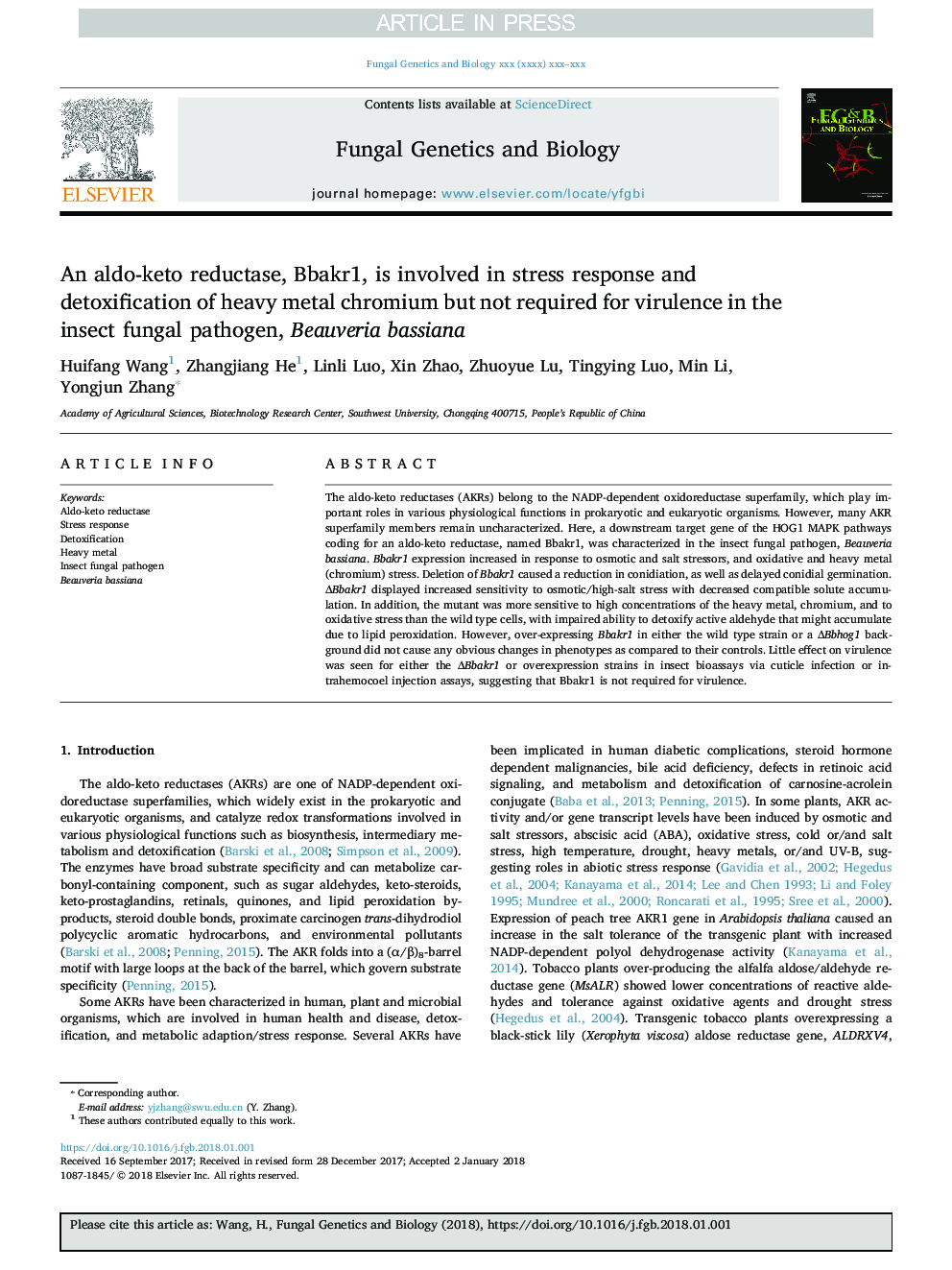| Article ID | Journal | Published Year | Pages | File Type |
|---|---|---|---|---|
| 8470453 | Fungal Genetics and Biology | 2018 | 9 Pages |
Abstract
The aldo-keto reductases (AKRs) belong to the NADP-dependent oxidoreductase superfamily, which play important roles in various physiological functions in prokaryotic and eukaryotic organisms. However, many AKR superfamily members remain uncharacterized. Here, a downstream target gene of the HOG1 MAPK pathways coding for an aldo-keto reductase, named Bbakr1, was characterized in the insect fungal pathogen, Beauveria bassiana. Bbakr1 expression increased in response to osmotic and salt stressors, and oxidative and heavy metal (chromium) stress. Deletion of Bbakr1 caused a reduction in conidiation, as well as delayed conidial germination. ÎBbakr1 displayed increased sensitivity to osmotic/high-salt stress with decreased compatible solute accumulation. In addition, the mutant was more sensitive to high concentrations of the heavy metal, chromium, and to oxidative stress than the wild type cells, with impaired ability to detoxify active aldehyde that might accumulate due to lipid peroxidation. However, over-expressing Bbakr1 in either the wild type strain or a ÎBbhog1 background did not cause any obvious changes in phenotypes as compared to their controls. Little effect on virulence was seen for either the ÎBbakr1 or overexpression strains in insect bioassays via cuticle infection or intrahemocoel injection assays, suggesting that Bbakr1 is not required for virulence.
Related Topics
Life Sciences
Biochemistry, Genetics and Molecular Biology
Cell Biology
Authors
Huifang Wang, Zhangjiang He, Linli Luo, Xin Zhao, Zhuoyue Lu, Tingying Luo, Min Li, Yongjun Zhang,
